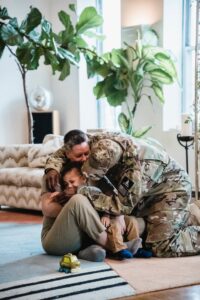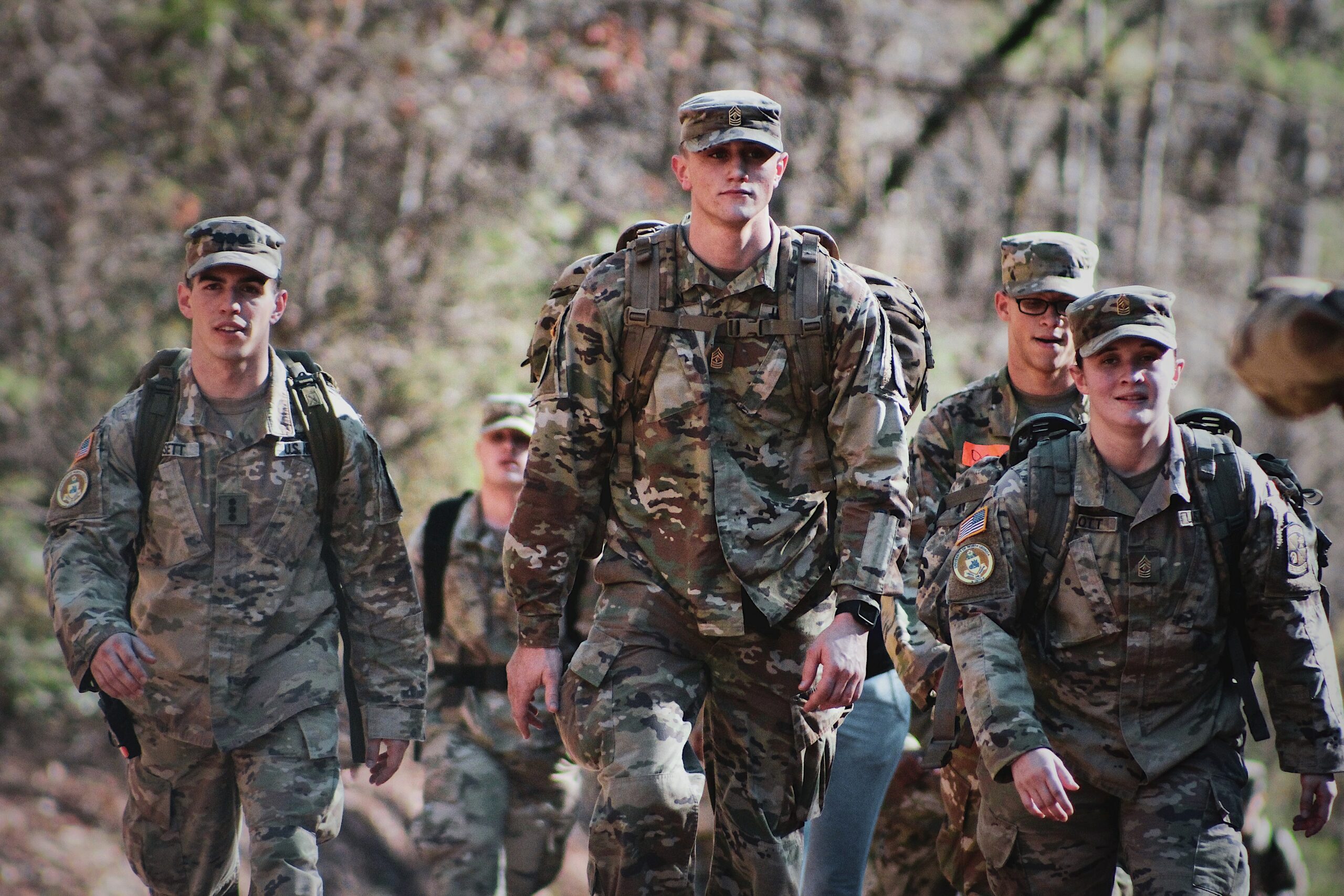 The life of military families is hard to understand if you have never been a part of it. There can be constant moving around, changing your job frequently, making new friends, and adapting to an entirely different culture from where you grew up. For a spouse and kids, there is the fear that something will happen to the military member, you avoid the news and anything that even talks about the idea of war. Military members often get told to hide or swallow their emotions to do what is best for the team.
The life of military families is hard to understand if you have never been a part of it. There can be constant moving around, changing your job frequently, making new friends, and adapting to an entirely different culture from where you grew up. For a spouse and kids, there is the fear that something will happen to the military member, you avoid the news and anything that even talks about the idea of war. Military members often get told to hide or swallow their emotions to do what is best for the team.
Once Military members transition to the civilian world they tend to get lost. You go from having a group of people always surrounding you and going through the same situations, to feeling alone. The best friends that have stuck with you now are across the country or world. You must start in a workforce at the bottom even though you have years of experience. All the while you can still be trying to process or learning to manage the trauma and experiences you have seen and been involved in.
DBT-PE has been found to reduce symptoms of PTSD and increase the quality of life for veterans (Scheiderer et al., 2017). Prolonged exposure helps to treat trauma and PTSD symptoms while the DBT skill helps to reduce self-harm and suicidal tendencies and build positive coping skills. DBT teaches clients how to learn skills to regulate their emotions, build distress tolerance skills and build interpersonal skills, so how can this fit for veterans, active-duty members, and their families.
Military members are often told to push down their emotions, the experience itself can be invalidating, personally my husband was told he could not take leave to go to a funeral because he had to be on base to complete the mission, so he hid his grief, and buried it. With the DBT skills of emotional regulation military members can relearn how to feel emotions positively and learn not to bury or suppress the emotions they are feeling.
Distress tolerance skills can help to bring us back from feelings of crisis. This could be because of the stress of getting out of the service, flashbacks from previous trauma, or everyday fears. Distress tolerance helps to get us out of the flight, fight or freeze behaviors and allows us to remember and brainstorm ideas to help us fix the crisis.
Interpersonal skills can help veterans once they transition into civilian life and workforce. You have been surrounded by a group of people that not only become your friends but also your brother/sisters, you know that they have your back at the end of the day. Losing this security when you transition out of the military can be difficult. Those who once lived two doors down are now across the country, and you have to build new relationships again. The interpersonal skills of DBT help us to learn how to build positive relationships with others and ourselves. The skills teach us to affirmatively ask for respect and help us to build boundaries in a workplace that may not value your experience.
 How can DBT help the families of military members? In a way it is similar to how DBT can help military members themselves but the focus may be a little different. Partners and children of military members worry about if their loved one will come home. Emotional regulation skills can help us to recognize these fears, check to see if they are effective for the current situation, and allow us to choose the right action moving forward from these thoughts. Distress Tolerance skills can help when you are listening to the news or scrolling online and you see something about the state of the world and the most recent conflict. That intense fear and anxiety that your military member may be involved can be decreased so that you can rationalize if they will be affected. Interpersonal skills help when moving from base to base, meeting new people, starting new jobs, going to new schools, they all can be daunting but with an arsenal of interpersonal skills available you can be ready to thrive at any new base you get sent.
How can DBT help the families of military members? In a way it is similar to how DBT can help military members themselves but the focus may be a little different. Partners and children of military members worry about if their loved one will come home. Emotional regulation skills can help us to recognize these fears, check to see if they are effective for the current situation, and allow us to choose the right action moving forward from these thoughts. Distress Tolerance skills can help when you are listening to the news or scrolling online and you see something about the state of the world and the most recent conflict. That intense fear and anxiety that your military member may be involved can be decreased so that you can rationalize if they will be affected. Interpersonal skills help when moving from base to base, meeting new people, starting new jobs, going to new schools, they all can be daunting but with an arsenal of interpersonal skills available you can be ready to thrive at any new base you get sent.
Military life can be hard, often you feel like no one else can understand what you go through. With DBT your struggle can be easier. You can help others understand what you need and what you go through. All the while you can get the support of a DBT therapist who understands how hard it can be to open up about the life.
Scheiderer, E., Carlile, J. A., Aosved, A. C., & Barlow, A. (2017). Concurrent dialectical behavior therapy and prolonged exposure reduces symptoms and improves overall quality of life for a veteran with posttraumatic stress disorder and borderline personality disorder. Clinical Case Studies, 16(3), 216-233.
If you want more help with skills like this, join our skills training groups or schedule with a therapist at CCDBT. We’d love to go more in-depth with this skill and many more like it!
About the Author
Samantha Ruwe (she/her), M.A., LPC is a Licensed Professional Counselor who specializes in dialectical behavior therapy. She works with teens and adults in a warm, compassionate, and non-judgmental manner to help clients build a life worth living. Samantha knows that therapy can be daunting to begin and is supportive of clients at all parts of their counseling journey. Click here to learn more about Samantha’s experience and therapeutic approach.

